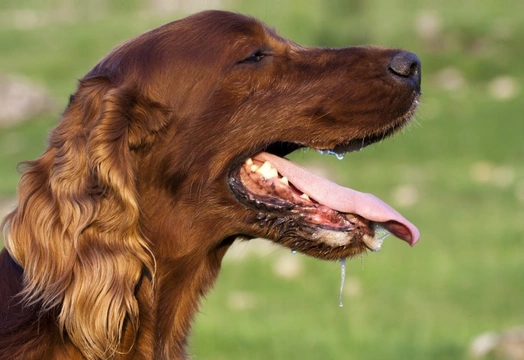
Dogs and dental antibiotics
If your dog needs to have a veterinary dental treatment, this will usually involve the use of antibiotics as well. Many dogs will need to have their teeth deep cleaned under anaesthetic by the vets at some point in their lives, although if you begin brushing your dog’s teeth when they are still young, you may be able to avoid the need for this entirely.
Dental deep-cleaning at the vets may be required if your dog has bad breath and other dental problems, such as an excessive plaque and tartar build-up, loose or rotting teeth, or problems with the gums such as gingivitis or periodontal disease.
Because the mouth of the dog is a fairly dirty place laden with bacteria, particularly if your dog also has dental disease or rotting teeth, antibiotics are a normal part of resolving dental problems in the dog, along with deep cleaning. If the bacteria levels in your dog’s mouth are high, these can not only attack the teeth and gums themselves, but also be digested and cause problems in the stomach and digestive system too.
In this article, we will look at dental antibiotics and when and why they are used in more detail. Read on to learn more!
Gum disease and bacteria
Periodontal disease is one of the most common problems of the teeth and mouth of the dog, particularly in older dogs that have gone their whole lives with little attention paid to their teeth and gums.
It is an inflammatory condition that affects the gums, due to an excessive growth of bacteria in the mouth caused by rotting teeth or otherwise poor oral hygiene. This all combines to cause problems such as bad breath, swollen, inflamed gums, and a high level of plaque and tartar. Over time, tartar builds up on the teeth themselves and progresses under the gum line where the teeth meet the gum, leading to gingivitis, a sore, red inflammation of the gums themselves. Oral bacteria can affect not only the mouth of the dog, but also the digestive system too, as it is swallowed with food and saliva.
Antibiotics before the procedure
When your dog has been scheduled for a thorough teeth cleaning and treatment session under anaesthetic, your vet may well prescribe antibiotics for use in the days leading up to the procedure. This is in order to reduce the levels of bacteria in the mouth when the mouth is being treated, minimising the chances of the dog developing a secondary infection after the treatment as a result of all of the bacteria in the mouth being disturbed.
Because a thorough dental treatment and deep cleaning may cause gums with gingivitis to bleed, this increases the risk of bacteria entering the bloodstream and causing other problems, which of course, should be avoided if possible!
Antibiotics after the procedure
Generally, any dental procedure performed under anaesthetic will require antibiotics to be prescribed after the procedure, whether or not these were given in the lead up to the treatment itself. These may be delivered by injection as part of the procedure, or given in oral form to use after the dog has gone back home.
It is vitally important to follow your vet’s advice with antibiotics, and ensure that your dog finishes the entire course that they are prescribed, even if their teeth appear to be fine shortly afterwards.
Preventing the need for dental treatment and antibiotics
Dental health in the dog is very commonly overlooked by the owners, even if the dog’s teeth are in an advanced state of decay accompanied by other problems such as foul breath and tooth loss. Even though it is strongly advised to begin cleaning your dog’s teeth at home while they are still young, few dog owners take up this advice, or remain conscientious about cleaning the teeth throughout the dog’s life.
After a veterinary dental procedure, your vet will almost certainly supply you with the right equipment to clean your dog’s teeth at home, and show you how to do this, and it is really important that you try to continue with this in the long term, to avoid the need for another procedure!
It can take time and patience to get your dog used to having their teeth brushed, particularly if you do not start until your dog is mature, but it can save you a lot of money, and your dog a lot of pain and discomfort down the line. Using the right shape and size of brush for your dog is important, as is ensuring that the bristles are not too hard, and do not cause discomfort for your dog.
The vast majority of dental problems faced by the dog that ultimately require the need for a deep cleaning under sedation can be totally prevented by caring for your dog’s teeth properly from the get go, and while cleaning your dog’s teeth daily is the ideal, even just cleaning them a couple of times a week can help a lot.



